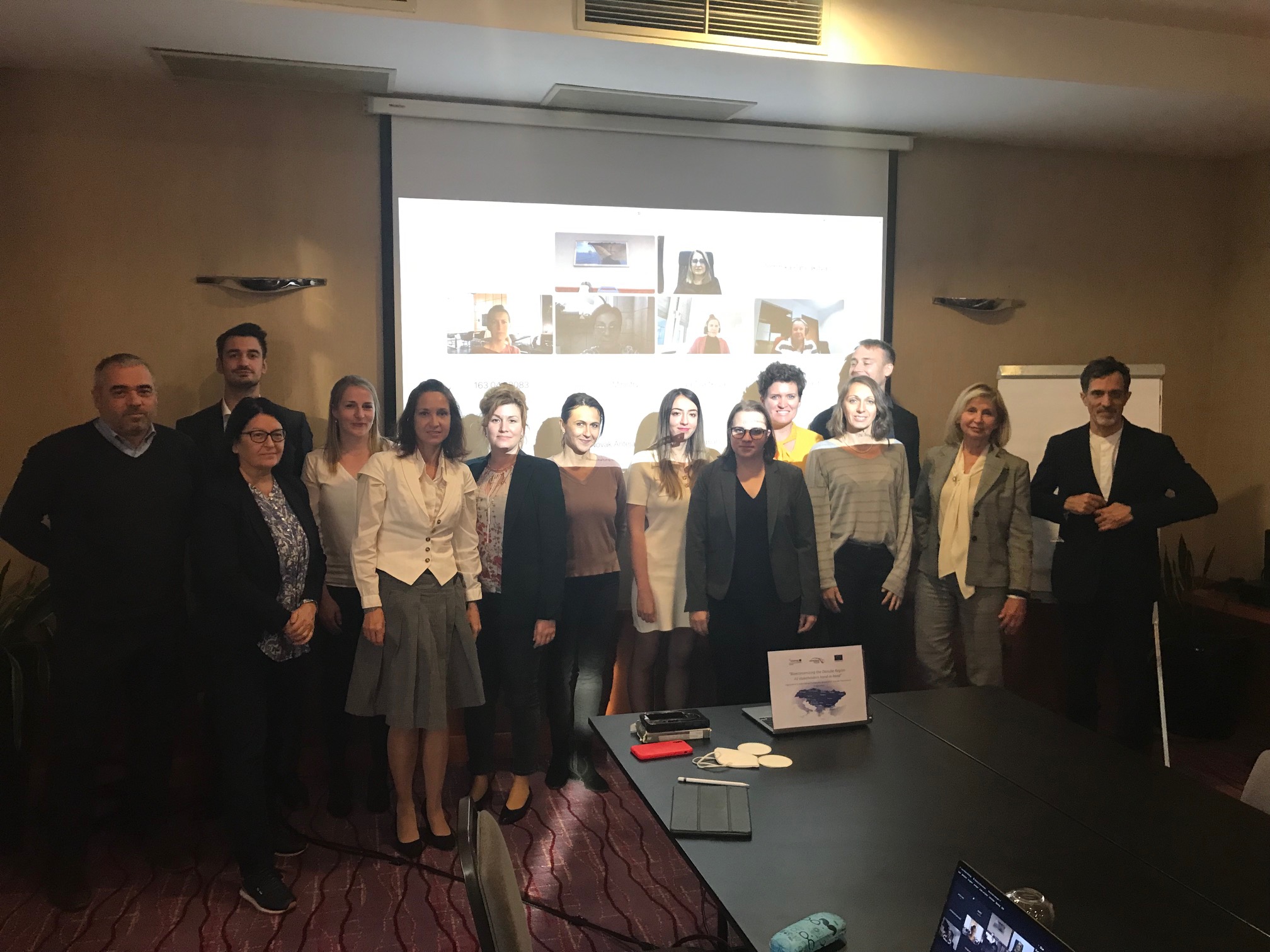GoDanuBio - GODANUBIO and EUSDR PA8 EVENT "BIOECONOMIZING THE DANUBE REGION: ALL STAKEHOLDERS HAND-IN-HAND" (Zagreb, 20/10/2021)
28-10-2021
On 20 October, the GoDanuBio project held a joint event together with EUSDR Priority Area 8 on the topic of ‘Bioeconomizing the Danube Region’[1]. The host and co-organiser of the event was the Ministry of Economy and Sustainable Development of Croatia.
The conference was organised in a hybrid format; 43 participants online, as well as 36 participants in-person at the Hotel International in Zagreb, were able to receive valuable insights into the topic of circular bioeconomy and how its deployment can improve the economies in the Danube macro-region.
The joint event had two parts: a session concentrating on bioeconomy in the Danube macro-region in the morning, and a Steering Group meeting of the GoDanuBio consortium in the afternoon.
The morning session opened with a presentation by Ms. Anita Sever-Koren (Croatian Ministry of Agriculture) on the topic of 'A vision for circular economy in Croatia'. She spoke about Croatia’s potential in production of biomass for the production of food and beverage, as well as the processing of biomass. She also shared interesting insights into Croatia’s National Development Strategy.
Ms. Anamarija Šopron Bognar from the Ministry of Economy and Sustainable Development, Croatia gave information on reforms, investments and planned calls on bioeconomy from the National Recovery and Resilience Plan. Her presentation was followed by the online participation of Prof. Dr. Orest Kiyko from the Furniture and Wooden Products Technology Department of the Ukrainian National Forestry University. His presentation was an excellent opportunity for attendees to learn more about the bioeconomy strategy of the region of Lviv in Ukraine. He spoke about the challenges the region is facing and the various strategies and initiatives which are being implemented there.
Dipl. Ing. Bernhard Zenz from the Federal Ministry of Climate Action, Environment, Energy, Mobility, Innovation and Technology, Austria also gave an engaging presentation on how the Austrian government governance model for the circular bioeconomy looks like and how it is being implemented.
After the presentations, two panel discussions were held. The first one was on the topic of ‘The role of bioeconomy clusters in the implementation of a strategy: pros and cons’ and the second one on ‘Resilient circular bioeconomy business models’. The participants in the panels were business representatives (such as Dr. Jasmina Ranilović from Podravka d.d., Croatia) and government officials (such as Vadym Tabakera from Lviv, Ukraine), as well as cluster representatives (such as Daniel Acs from Bioeconomy Cluster in Slovakia).
In the afternoon session, the GoDanuBio consortium had the opportunity to meet physically for the first time since July 2020 and discuss the status of the project implementation.
After introductory words from BIOPRO, the individual work packages were presented. Daniel Cosnita (CLUSTERO) spoke about the current status of WP T2. This was followed by a discussion in which the other partners asked questions on how to proceed with one of the deliverables. Mateja Dermastia (Poly4EmI) then spoke about WP T3, and again there was an interesting discussion which focused on the differences in the sent tables about current funding programs and their contact persons. Regarding WP T4, Dorian Wessely (Biz-Up) presented the current status and the possibility for all partners to contact Biz-Up if they have any questions. He presented the approach that Biz-Up is taking in planning the training on participative governance in Upper Austria. Sergi Costa (BIOPRO) presented the approach of Baden-Württemberg. Thereafter, there was a mutual exchange between the partners, in which it turned out that some partners already have ideas and concrete plans regarding these trainings i.e. Hungary, Romania and Serbia. The meeting was closed by Teodora Atanasova (BRAIT) with the presentation of the action plan of the WP C till February 2022.
Overall, the event was very successful sharing insights on circular bioeconomy aspect of EUSDR and how GoDanuBio can contribute to its PA8. All participants agreed that it was a dynamic day, filled with many engaging sessions which gave the opportunity to expand their knowledge on topics related to bioeconomising the Danube region with mutual efforts.
[1] EU Strategy for the Danube Region. The Priority Area 8 (PA 8) aims to support the competitiveness of enterprises in the Danube region

